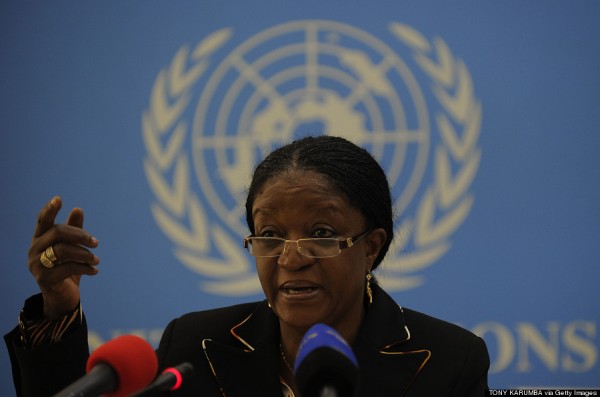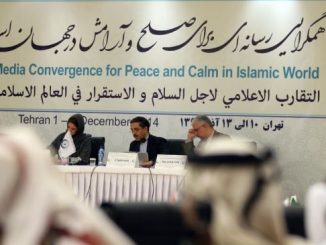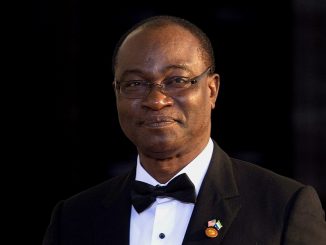Date: 13 October 2014
The Special Representative of the Secretary-General on Sexual Violence in Conflict, Mrs. Zainab Hawa Bangura, has concluded her first visit to South Sudan with a Joint Communique with the government that outlines clear steps they will take to prevent and address sexual violence crimes. Sexual violence is a consistent characteristic of the conflict and is being perpetrated by all the parties.
The Special Representative met with President Salva Kiir at the beginning and the end of her visit, and held extensive consultations with relevant Ministers as well as the Army and Police. She also met with the Chairman of the South Sudan Human Rights Commission, women’s groups, community leaders, service providers, journalists and UN staff.
The Special Representative travelled to Bentiu, the capital of Unity state, to engage with the local commander of the Sudan People’s Liberation Army (SPLA), government authorities, UN staff, humanitarian workers and survivors of sexual violence.
“What I witnessed in Bentiu is the worst I have seen in my almost 30 years in dealing with this issue. This is because of the combination of chronic insecurity, unimaginable living conditions, acute day-to-day protection concerns and rampant sexual violence,” said SRSG Bangura. “The bodies of women and children are the battleground of this conflict. In the words of a woman activist I met, ‘It is not just about rape, it is to inflict unimaginable pain and destruction.’”
Sexual violence is a problem that pre-dates the December 2013 crisis and has been greatly exacerbated by the escalation of the conflict. Following the December crisis there has been an additional dimension of sexual violence attacks and reprisals on an alarming scale. There are also grave concerns of sexual violence perpetrated along ethnic lines with attacks fuelling reprisals and a cycle of recrimination and revenge.
The Special Representative condemns these atrocities and appeals to the parties to stop the violence immediately. She reminds parties to the conflict, both government and opposition forces, that they cannot declare war on their own people and ultimately there must be accountability for these crimes.
She also stressed that the humanitarian cost of the conflict will continue to rise until there is a viable peace agreement between the parties. “The message from the women of South Sudan to their political leaders is very clear: end this war!” SRSG Bangura said.
The Special Representative also remains concerned about the lack of services for victims of sexual violence and the lack of reporting of this crime to security, judicial, and social welfare actors due to the closure of government offices, malfunctioning police services and because of the social stigma associated with sexual violence. All these factors contribute to a climate of impunity. UN staff stressed that critical shortfalls in funding have significantly hampered service delivery.
“The international community cannot leave survivors to fend for themselves. Now is the time to step up and help South Sudan put an end to these atrocities,” the Special Representative urged.
The newly signed agreement outlines critical priority areas for action including ensuring medical, psychosocial and legal assistance to victims, addressing impunity, security and justice sector reform and ensuring that sexual violence crimes are explicitly addressed in the peace process and as an aspect of the Cessation of Hostilities Agreement.
“My Office and the UN system are committed to helping the government and people of South Sudan put an end to sexual violence in conflict in the country, and we stand ready to support them in any way necessary to end the horrible devastation of this crime,” noted SRSG Bangura.
The Special Representative also met with Riek Machar, leader of the Sudan People´s Liberation Movement (Opposition) in Addis Ababa, Ethiopia, to begin discussions on concrete measures that the opposition must take to prevent sexual violence by their forces and in areas under their control.





Leave a Reply